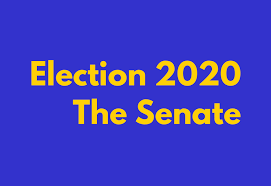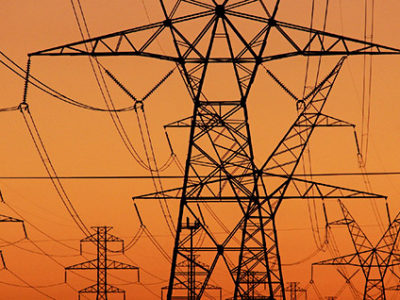New Roadmaps for Negative Emissions
Two reports try to figure out how to scale carbon removal
Last week saw two exciting reports released which examine how to remove carbon at scale. Getting to Neutral: Options for Negative Carbon Emissions in California was led by a team from Lawrence Livermore National Labs (LNLL), and assesses pathways for California to remove 125 million tons of CO2 /year from the air by 2045, in order for California to meet its carbon neutrality goal. CarbonShot: Federal Policy Options for Carbon Removal in the United States comes ...
CONTINUE READINGElection 2020: The Battle for the Senate
Whatever happens to the White House, control of the Senate will be crucial.
It’s natural that the Presidential election has soaked up all the attention. But control of the Senate may be equally important — some might say even more important. If a Democrat wins in 2020, there will be little or no chance of passing significant legislation without control of Congress. It seems very likely that the Democrats will keep the House, but that won’t give them a lot of legislative leverage if Mitch McConnell is calling the shots in the Senat...
CONTINUE READINGSubstantive Due Process, Climate Change, and Flint, Michigan
Toward substantive constitutional protections for the environment
The past few weeks have been eventful for environmental issues and constitutional law. On January 17th, a panel for the Ninth Circuit Court of Appeals threw out Juliana v. United States climate litigation for lack of standing. A few days later, the U.S. Supreme Court denied certiorari on a ruling from the Sixth Circuit, Guertin v. Michigan, allowing lawsuits arising from the Flint Water Crisis to proceed. Plaintiffs in Juliana and Guertin try to break new ground unde...
CONTINUE READINGCharging Consumers for Imaginary Power Needs
FERC is distorting energy markets in the name of perfect competition.
Last year, the GOP majority on FERC decided that state clean energy policies were distorting energy markets in the country’s largest grid region. Because they provided incentives for power producers, FERC ruled, those policies should be considered subsidies. It directed grid operators to introduce new policies to counter those subsidies and halt the dreadful onslaught of cleaner energy. FERC’s remedy will cost consumers in that part of the country billions of dolla...
CONTINUE READINGBREAKING: SB 50 Voted Down By State Senators Representing Affluent Suburbs
Final vote today kills major climate-land use legislation to legalize apartments near transit
The California State Senate this morning (after an initial vote last night) narrowly and finally voted to kill SB 50, a major climate-land use bill that would have allowed apartment buildings near major transit stops and job centers, as well as fourplex conversions statewide. Despite high-profile opposition from some low-income tenants groups, the senators voting against the bill largely represent affluent suburbs. To illustrate the geographical divide, a Twitte...
CONTINUE READINGClimate Change and the Financial Industry
How is one of the world’s largest industries responding to climate change?
As of 2018, the U.S. financial industry contributed $1.5 trillion to GDP. How is the financial sector responding to climate change? The short answer is “slowly so far, but there are signs of progress.” For instance, just last Friday, the NY Times reported that European Central Bank began a strategy review with climate change on the agenda. There are four areas where we're starting to see significant change. First, there are indications that investors are start...
CONTINUE READINGAntacids for the Sea: Artificial Ocean Alkalinization
A potential tool for adaptation and carbon removal, but more research is needed.
The carbonate cycle helps make the oceans one of the largest carbon sinks on the planet. As the oceans’ surface waters mingle with the open air, they absorb enormous amounts of carbon dioxide (CO2), storing it in the water as carbonic acid and carbonates and as limestone on the seafloor. The carbonate cycle is a natural process that far predates humans and industrialization, but as humans have added more CO2 to the atmosphere, the oceans have absorbed more CO2—mo...
CONTINUE READINGClimate Change and Political Action
Do the Fires in Australia Change Anything?
“I want people to unite behind the science . . . I’m not the one who’s saying these things. I’m not the one who we should be listening to. And I say that all the time. I say we need to listen to the scientists.” --Greta Thunberg, September 11, 2019 “Look, scientists also have a political agenda.” --Donald Trump, October 11, 2018, interview on 60 Minutes “We should be focused on clean and beautiful air-not expensive and business closing GLOBAL ...
CONTINUE READINGCan the Center Hold?
The Challenge to Mainstream Environmentalism
Is environmentalism facing a paradigm shift? Since the 1970s, mainstream environmentalists, lawyers, and scholars have sought incremental progress based on established law and political realities. But frustration with that approach is palpable. The face of climate advocacy is now seventeen-year-old activist Greta Thunberg rather than Establishment politician Al Gore. And there is growing frustration with conventional approaches. The Juliana case is one sign of this fr...
CONTINUE READINGDeciding a Climate Case in the Shadow of the Supreme Court
Juliana Judges Surely Had The Higher Court in Mind in Drafting Their Decision
The irony of the Ninth Circuit decision dismissing the Juliana v. United States case this week is plain to see. Two branches of government -- the legislative and executive - have failed to act to address an environmental problem that may cause the destruction of the federal government itself. The third branch, the judiciary, recognizes the existential threat but refuses to step in to do anything to stop the destruction. As Judge Staton, who wrote a powerful di...
CONTINUE READING












